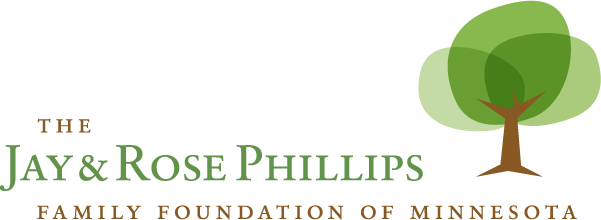BY REVEREND JERAD MOREY, THE MINNESOTA COUNCIL OF CHURCHES
The Foundation began funding Respectful Conversations at The Minnesota Council of Churches in 2012 as a way to engage congregations of all affiliations around the same-sex marriage debate. Today we support their work to bring Jewish and Christian leaders together to explore their differences, while building bridges to better understanding of each other’s faith tradition in light of conflictual world and local events. During this holiday season, we speak of peace as a wish for all humankind. Building empathy among people with differing world views is critically important if we are to curb the violence, distress and pain that unfortunately threatens to make “peace on earth” simply a sentiment written in holiday greeting cards, and not the thirst of all humanity.
In its yearly report, “The Future 100,” the marketing and trend watching service JWT Intelligence anticipates what products, concept, gimmicks and themes will rise in popularity over the next year. Do you know what the top rising concept is predicted to before 2016? Empathy.
For four years Minnesota Council of Churches, with support from the Jay and Rose Philips Family Foundation of Minnesota, has been at the crest of the strengthening empathy wave with Respectful Conversations. When Minnesotans were divided over the amendment defining marriage in 2012, we partnered with the Public Conversations Project to develop a structured conversation model designed not to change minds but to soften hearts. We didn’t care whether people agreed with each other – we cared whether they could relate to each other.
Our project model was developed on the belief that the strength of our democracy rested on the strength of our communities, that the strength of our communities was contingent on the strength of our relationships, and that the strength of our relationships was determined by the quality of our conversations. Conversations began with this video:
The project was successful – 54 conversations involved 1,500 Minnesotans, and about two thirds of those told us they felt “more empathy for those with whom I disagree.” Those numbers were at first unimpressive – until we dug in and saw that much higher empathy numbers were reported in communities where disagreement was more present! When people from multiple perspectives actually sat down with each other, three quarters reported an empathy increase! We patted ourselves on the back and prepared to put the project to rest.
But we got phone calls from participants: 
- “Now can we do a Respectful Conversation on immigration?”
- “Now can we have a Respectful Conversation on whether to perform same-sex ceremonies?”
- “Could we have a Respectful Conversation between people who are religious and people who are atheist and humanist?”
- “What if religious leaders from Minnesota’s Jewish and Protestant communities had a sincere and in-depth conversation about issues affecting Israelis and Palestinians?”
- “Can we use this model to bring elected politicians together and bridge their differences?”
We sent out a survey to people who had been a part of the first round of conversations. For many of them their conversation experience had been over 6 months ago. We asked “What difference did participating in the Respectful Conversation make to you?” We received some great feedback:
- “Because of this experience, I am more aware of my own attitude when listening to others of different opinions.”
- “I believe I am a better listener, and can speak at more appropriate times. It is important
to not dominate the conversation.” - “It was easier to keep an open mind and heart and to try to listen to other points of view.”
- “In the weeks following the event I found myself using better listening skills.”
And my favorite:
- “I was able to listen to my son [over a school progress issue] and ask clarifying questions
without lecturing.”
We realized that people left these structured three-hour conversations feeling energized, and with an increased capacity for listening to and empathizing with their fellow human beings. We realized that while we had started in an attempt to minimize the damage of what we feared would be an ugly public debate, we had ultimately developed a tool that strengthened even intimate family bonds.
With faith in these results and ongoing support from The Jay and Rose Philips Family Foundation of Minnesota, we have continued to offer Respectful Conversations. As of December 2015, over 80 conversations with over 2200 Minnesotans in urban, suburban, exurban and rural communities have built empathy through a Respectful Conversation. The most recent conversation topic, “race” relations, was launched at the Conflict Resolution Minnesota conference and, after nearly 100 participants, has now demonstrated empathy rates north of 80%.
As the wave is growing, we’re getting better at this.
By funding Respectful Conversations, the foundation is building a movement of respect in Minnesota. These events really do lead to higher-quality conversations. They really lead to stronger relationships.
In today’s world, where fear of the other can sometimes seem to reign and public figures don’t seem to realize the lasting impact of their divisive rhetoric, we are so grateful to have this tool. Indeed, the future of our democracy requires it.
Rev. Jerad Morey is program and communications director for the Minnesota Council of Churches and a founding staff person for the Respectful Conversations Project.
